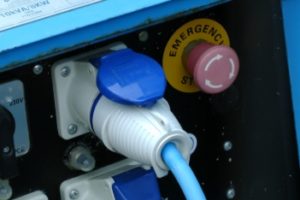Things to Consider When Choosing a Portable Generator
It does not matter whether you are preparing for emergency power, for recreational use, or running a job site; there are a lot of things to consider when purchasing the best portable generator. That can help you sort it out among many options out there. The following are some of the things to consider when choosing a portable generator.
Power and Outlets
 You have to determine the amount of power you require. Maybe your generator needs 800 watts to run, but sometimes it may need 2000 watts for a startup. As you know, generators vary in size, and even their prices vary. Also, you have to look at the different types of outlets you need. Smaller inverter generators have a couple of outlets and even USB ports.
You have to determine the amount of power you require. Maybe your generator needs 800 watts to run, but sometimes it may need 2000 watts for a startup. As you know, generators vary in size, and even their prices vary. Also, you have to look at the different types of outlets you need. Smaller inverter generators have a couple of outlets and even USB ports.
Is It for Consistent or Occasional Use?
A lot of generators have a warranty that will cover you for many years if you are a consumer user. For recreational use or emergency power, a reputable brand will work for you. However, if you are running a job that needs a generator nearly every day, you will be better off searching for a model with a legitimate commercial engine. Other than being a better fit, you will get a warranty that lasts you a few years than just 6 months or 90 days. The only downside is that they are a bit more expensive.
Fuel Type
Gas generators are the most common. That is because fuel is easy to come by except during emergencies following a major storm. Diesel generators are known to have better fuel efficiency. When you upgrade, you lose the carburetor that seems to be clogged at least a convenient time. If you are looking for a whole-house generator, then you should get one that runs on diesel.
You can also search for a propane generator. That is the case if you want a more environmentally friendly option. There are also battery-powered generators that can recharge via solar panels, have no emissions, and run silently. However, they are expensive, cannot produce more than 1800 watts, and recharge slowly. Outside of tailgating and camping, they are not a practical option.
Noise Level
Smaller generators have a quiet design. For instance, some are quieter as compared to the normal conversation levels. If you are camping or tailgating in an area that allows generators, your neighbors will appreciate the consideration.

